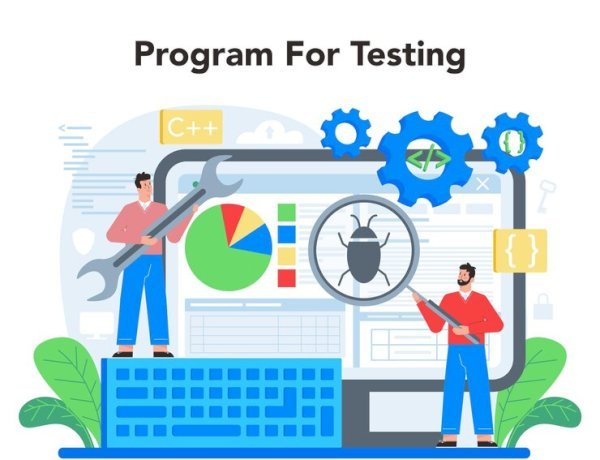What Is an Online Gaming Platform? 2025 Ultimate Guide with Data & Insights
Discover what an online gaming platform is in 2025. Learn types, features, examples, safety, payment options, and future trends in this complete expert guide.

In 2025, gaming is no longer confined to consoles or local arcades. Instead, it has expanded into a vast digital world accessible from anywhere with an internet connection. But what exactly is an online gaming platform? In simple terms, it is a website, app, or service that hosts games, allowing users to play, compete, and connect online.
This comprehensive guide explains everything you need to know about online gaming platforms in 2025, from their definition and types to how they work, their safety standards, payment options, social features, pros, cons, and expert insights. Whether you’re a beginner or an industry professional, this data-rich analysis will deepen your understanding of today’s gaming platforms.
What Is an Online Gaming Platform?

Image source: freepik.com
An online gaming platform is a digital service where users can play games over the internet. These platforms provide game servers, user account management, payment processing, and community features to create enjoyable gaming experiences.
Recent research by Newzoo (2025) estimates that over 3.6 billion people worldwide play games online, generating more than $207 billion in global gaming revenue. Mobile gaming alone now accounts for over 54% of all gaming spending, highlighting how integral platforms have become to everyday entertainment.
How Do Online Gaming Platforms Work?

Image source: freepik.com
When you sign up for an online gaming platform, you typically create an account using your email or phone number. Verification processes and two-factor authentication are standard in 2025 to maintain user security.
The platform hosts games on secure servers, using advanced cloud technology to reduce lag and ensure stable gameplay even with millions of active users. Payment systems are integrated for deposits, purchases, or withdrawals, depending on the platform type. Licenced services use encryption to protect user data and undergo regular audits to maintain fairness, especially in games involving monetary stakes.
Most platforms also provide customer support through live chat, email, or FAQs to help users resolve technical, payment, or gameplay issues promptly.
Read Also: What Is Online Gambling? 2025 Guide with Stats, Laws, and Safety Tips
Types of Online Gaming Platforms with Examples
Casino Gaming Platforms

Image source: freepik.com
Casino gaming platforms offer a range of classic and modern games like slots, blackjack, roulette, poker, and baccarat. These platforms are strictly regulated and audited by gaming authorities to ensure fairness and player protection. In 2025, many of them now feature live dealer games, mobile-first interfaces, and fast payout systems. They also support multi-device access and responsible gaming tools to protect users.
Sports Prediction and Fantasy Platforms

Image source: freepik.com
These platforms allow users to build fantasy teams or predict real-world sports outcomes to earn points, rankings, or rewards. Sports fans can engage with real-time data, player stats, and leaderboards. In recent years, such platforms have seen massive growth globally, particularly in cricket, football, and American football segments. Some offer daily contests, while others focus on season-long fantasy leagues with social engagement features.
eSports and Competitive Gaming Platforms

Image source: freepik.com
eSports platforms focus on competitive tournaments and professional gameplay experiences. They often host global competitions, provide matchmaking systems, and support game titles like FPS, MOBA, and strategy games. Users can participate in tournaments, join ranked ladders, and stream live gameplay. Some platforms also allow tournament organisers to create brackets and manage live results easily.
Social and Casual Gaming Platforms

Image source: freepik.com
Casual gaming platforms offer free-to-play games that are easy to pick up and enjoy with friends. These often include puzzle games, word games, and light strategy games that can be played in short sessions. Social features like in-game chat, friend lists, and multiplayer matchmaking help build strong online communities. Many platforms also offer optional in-app purchases and loyalty-based reward systems.
Skill-Based Gaming Platforms

Image source: freepik.com
Skill-based gaming focuses on games where outcomes are determined by a player’s ability, not luck. These platforms host competitions across various genres such as puzzle-solving, trivia, strategy, and card games. Users can earn rewards or compete in tournaments that test their reflexes, memory, or knowledge. Many platforms feature leaderboard systems, real-time matchmaking, and fraud prevention mechanisms to ensure fair play.
Key Features of Top Gaming Platforms

Image source: freepik.com
In 2025, leading gaming platforms stand out for their multi-device compatibility, allowing seamless play across phones, tablets, and desktops. High-speed servers reduce lag and support large user bases without downtime. User-friendly interfaces ensure easy navigation, while secure payment options provide flexible deposit and withdrawal methods, including cards, e-wallets, and cryptocurrencies like Bitcoin and Ethereum.
Responsible gaming tools such as deposit limits, playtime reminders, and self-exclusion features are essential for user wellbeing. Regular audits by independent agencies validate game fairness, while customer support via live chat or email resolves issues efficiently. Additionally, rewards and loyalty programs, including points systems, badges, and VIP benefits, help retain users.
Safety and Security in 2025

Image source: freepik.com
User safety is a top priority. Two-factor authentication has become standard to protect accounts, while SSL and TLS encryption safeguard data and financial transactions. AI-powered fraud detection systems identify suspicious behaviour in real time, preventing fraud and enhancing fairness. Licensing and regulation by authorities like the UK Gambling Commission, Malta Gaming Authority, and Curacao eGaming ensure platforms comply with international standards. Regular audits further confirm game fairness and data security.
Payment Methods: The New Standard

Image source: freepik.com
Today’s platforms offer diverse payment options. Debit and credit cards remain popular, while e-wallets such as PayPal, Skrill, and Neteller are valued for their speed and convenience. Prepaid cards like Paysafecard provide an extra layer of privacy for users who prefer not to share banking details online. Cryptocurrencies such as Bitcoin, Ethereum, and USDT are gaining traction for their fast processing times and privacy benefits. Direct bank transfers remain available for traditional users.
To better understand how online gaming platforms handle features, payments, and player safety, learn more.
Read Also: How to Find Safe Online Casino Bonuses
Mobile Gaming Dominance in 2025

Image source: freepik.com
Mobile gaming has revolutionised the online gaming landscape. Newzoo’s 2025 data confirms mobile gaming accounts for over half of all gaming revenue, driven by affordable smartphones and improved internet connectivity. Leading platforms offer dedicated apps for Android and iOS, providing optimised performance, push notifications, and easy updates. Progressive web apps (PWAs) allow gameplay via mobile browsers without installations, while biometric logins using face ID or fingerprints enhance security and convenience. Cross-platform syncing enables users to continue playing seamlessly across devices.
Social and Community Features

Image source: freepik.com
Community is at the heart of successful platforms. Integrated live chatrooms and forums let users interact, discuss games, and build friendships. Leaderboards and rankings encourage competitive spirit, while community tournaments and events increase engagement. Streamer integration allows users to watch or host live gaming streams directly within platforms. Referral bonuses incentivise sharing with friends, supporting organic growth and loyalty.
Future Trends and Industry Data

Image source: freepik.com
The online gaming sector continues to innovate. Metaverse integration is underway, merging gaming with VR and AR to create immersive virtual worlds. AI personalisation is enhancing user experiences by tailoring game suggestions, promotions, and in-game assistance to individual preferences. Cross-platform play is becoming standard, enabling players to switch devices mid-game without losing progress.
There is also a growing emphasis on green gaming, with companies investing in renewable energy-powered data centres to reduce environmental impact. Meanwhile, stricter global regulations are being enforced to ensure user protection, fair play, and responsible gaming.
Industry Snapshot (2025):
- Global gaming revenue: Over $207 billion
- Mobile gaming share: 54%
- Total online gamers: 3.6 billion+
- Fastest growth regions: Asia-Pacific, Europe, and parts of Africa, driven by 5G expansion
Advantages and Disadvantages

Image source: freepik.com
Advantages
Online gaming platforms are accessible anytime, anywhere, offering vast game libraries across genres. They provide social interaction through communities, chats, and tournaments. Payment systems are secure and fast, while rewards and loyalty benefits enhance user value.
Disadvantages
However, gaming addiction remains a risk without discipline. Users may unknowingly register on unlicensed or unsafe platforms, leading to potential data risks. Some payment methods carry processing fees, and stable internet connectivity is required for uninterrupted gameplay.
Responsible Gaming Practices

Image source: freepik.com
Responsible gaming is vital. Platforms encourage healthy habits by offering deposit limits, playtime trackers, and self-exclusion tools for users who need a break. They also provide links to professional support organisations specialising in problem gaming, ensuring user wellbeing remains a priority.
Expert Insights: What Users Want Most

Image source: freepik.com
From recent industry observations, users increasingly prioritise trust over promotions. Verified licences, fast payouts, and fair play are valued more than flashy bonus offers. Cross-device continuity has become a user expectation rather than a premium feature, while clean, intuitive interfaces help retain players.
Community features such as tournaments, chats, and leaderboards drive long-term engagement, while fast withdrawals build brand loyalty. As one gaming UX consultant summarised in a 2025 interview, “Players will forgive fewer games or features, but they won’t forgive broken trust.”
Editor’s Tip: If you’re new to online gaming, try social or skill-based apps like Words with Friends or Skillz before investing in competitive or casino gaming. This helps you explore gaming styles safely while understanding platform interfaces without financial risks.
Conclusion
An online gaming platform is far more than just a place to play games; it is a digital ecosystem combining entertainment, community, security, and innovation to create enjoyable experiences for millions worldwide. Understanding how these platforms work, their safety measures, and what they offer empowers you to make informed decisions and maximise your gaming experience responsibly.
As gaming continues to evolve with AI, VR, and global connectivity, prioritise platforms that value user trust, fairness, and wellbeing. Whether for fun, competition, or community, knowledge is your best tool in this dynamic digital world.
FAQs
- What is an online gaming platform?
An online gaming platform is a digital service where users can play, compete, and interact over the internet securely. - Are these platforms safe to use?
Yes, if licenced and regulated. Check for encryption, responsible gaming tools, and positive user reviews before signing up. - Do all platforms involve money?
No. Many social platforms are free to play, while casino and skill-based platforms may require deposits for certain features. - Can I play on my mobile?
Absolutely. Most platforms have dedicated apps or mobile-optimised websites for easy access. - How do I choose the right platform?
Look for valid licences, clear terms, secure payments, good user reviews, and helpful customer support.




























